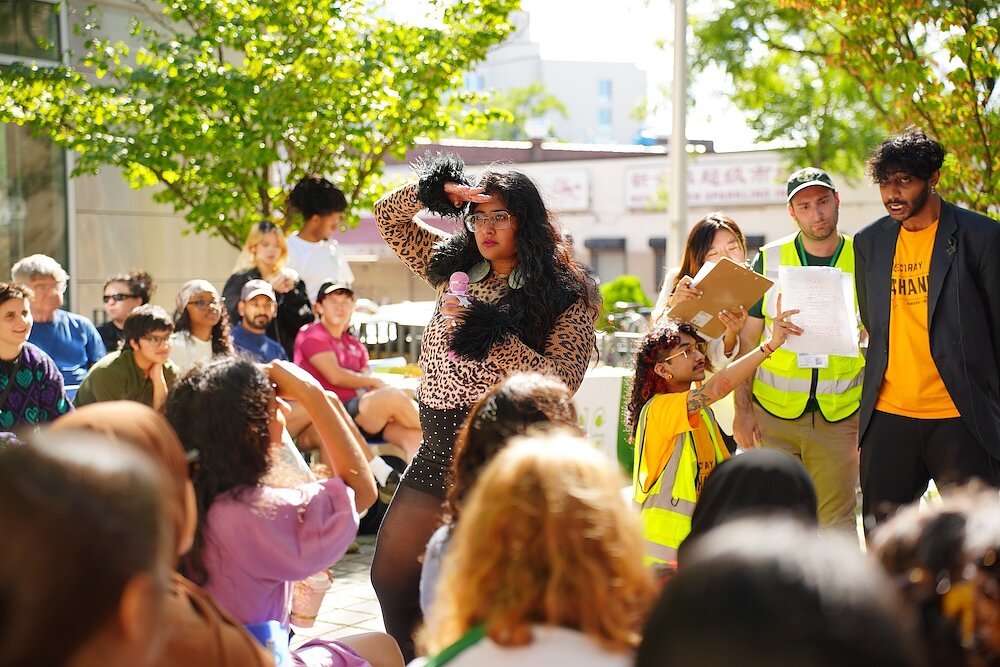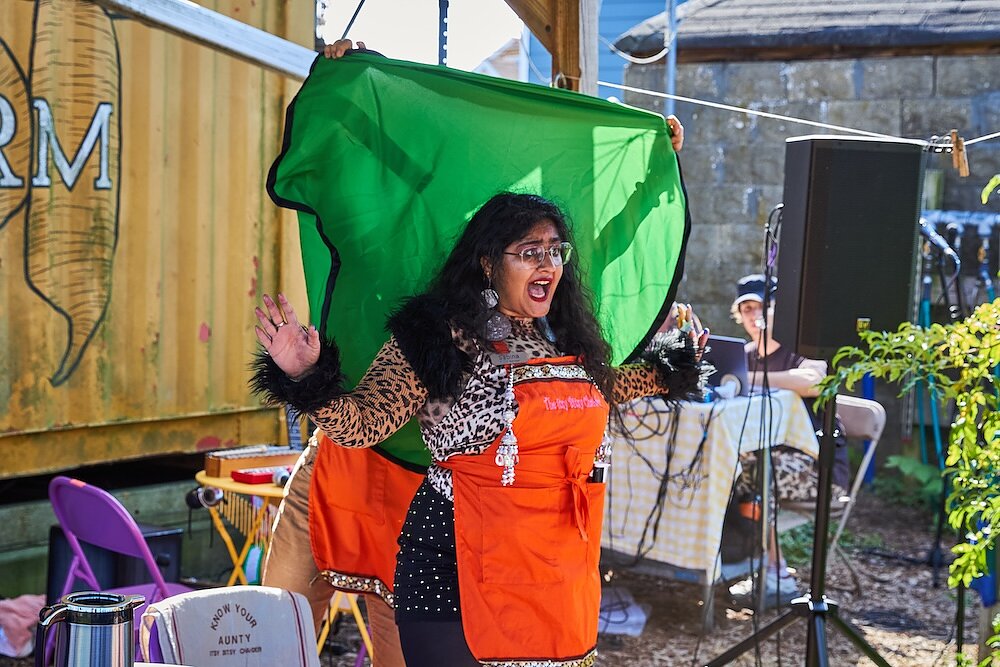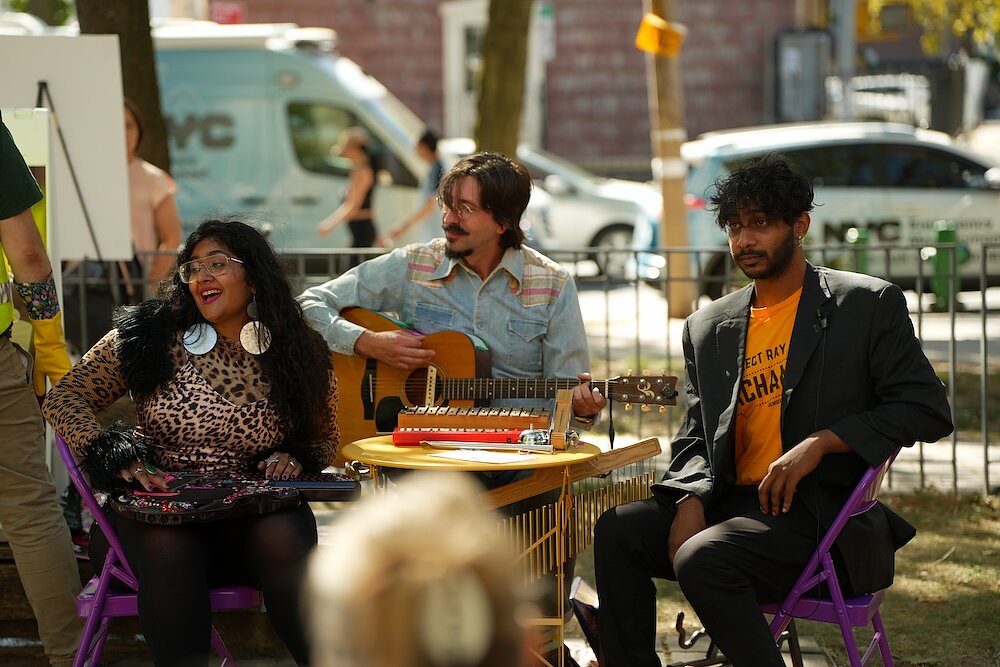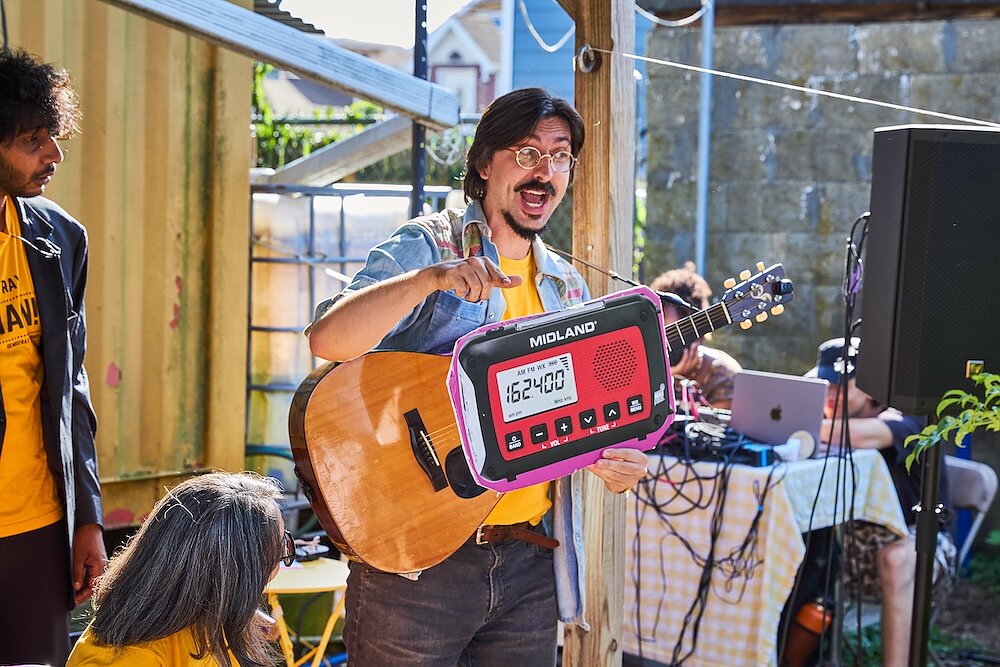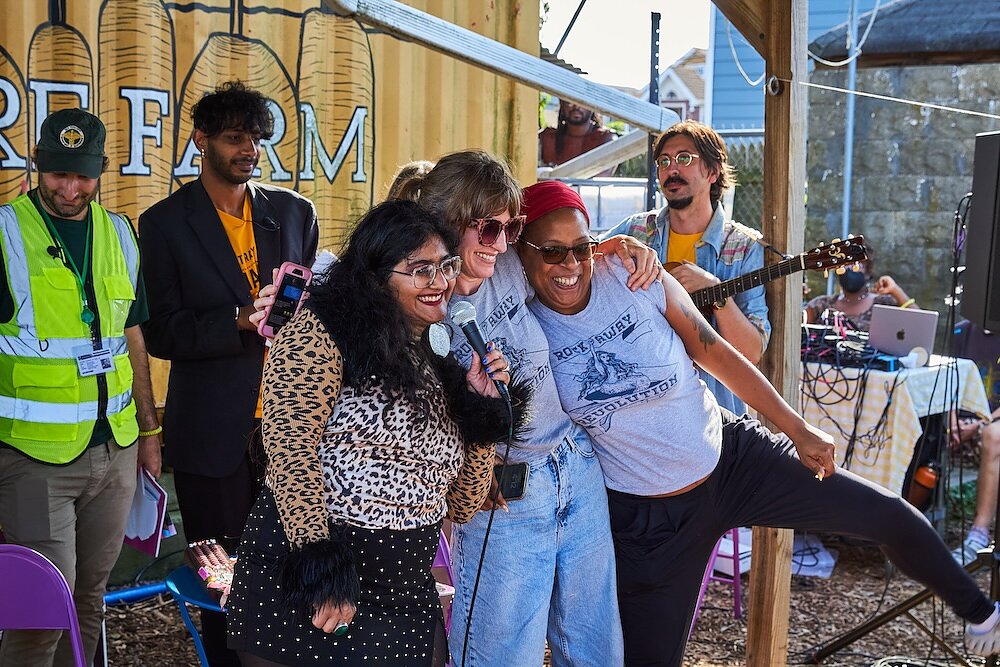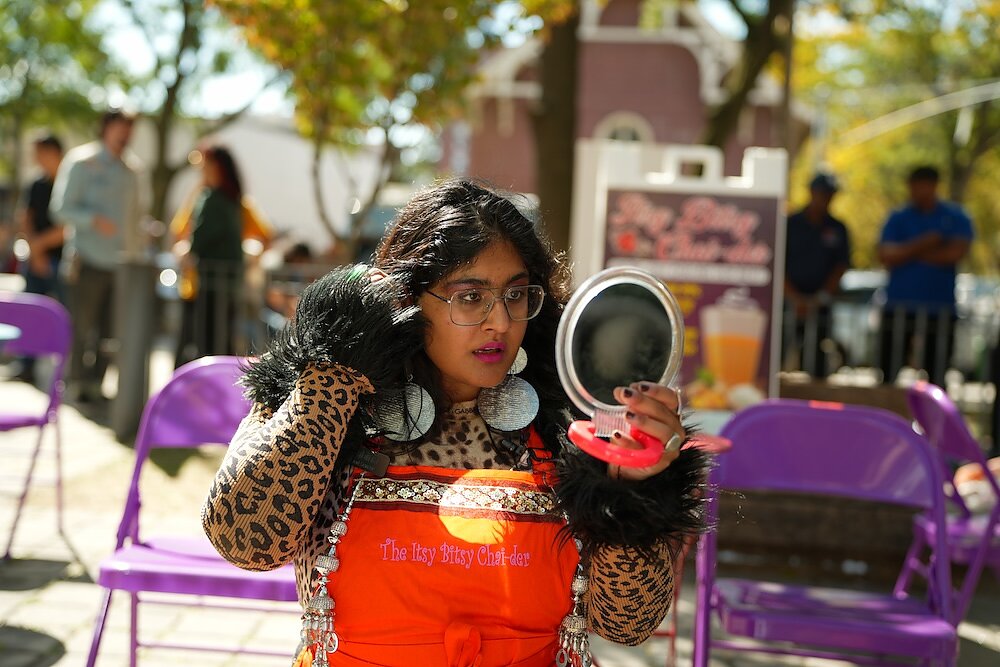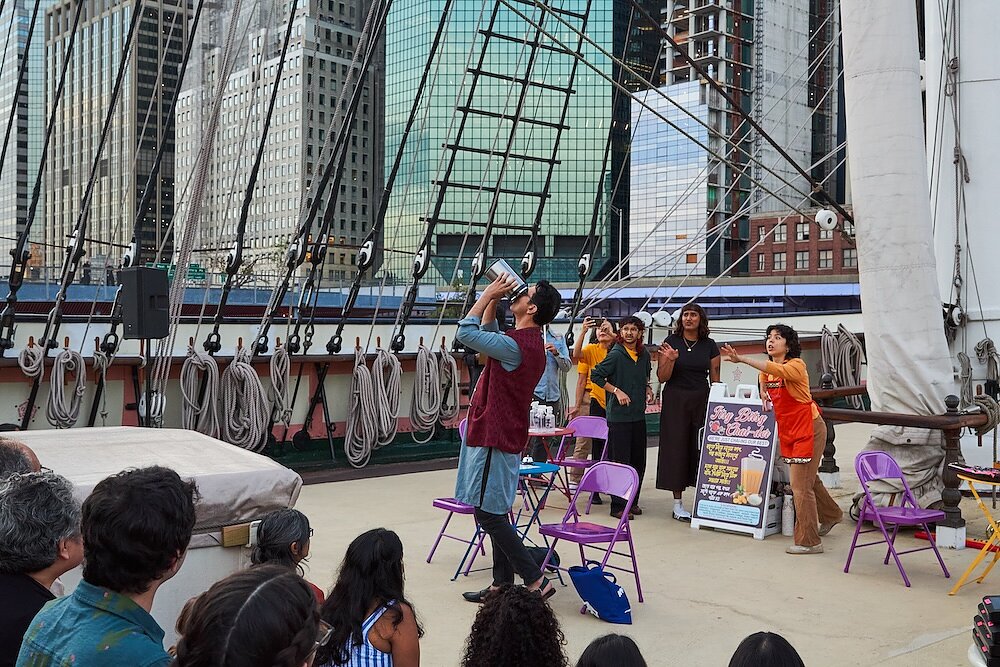Sabina Sethi Unni Merges Street Theater with Climate Resiliency
When I first met Sabina Sethi Unni at a coffee shop in 2023, she arrived with a bedazzled synthesizer in hand. A public theater artist, community organizer, and urban planner, Unni is constantly looking for ways to delight through her art. For her that day, joy was the sinewy ambient sounds of a 1987 Japanese synth.
Two years later, the same bedazzled synthesizer figures heavily in the comedic harmonies of her latest public theater series, “Flood Sensor Aunty” (FSA), which she wrote, directed, and acted in alongside 14 cast and crew members. The play revolves around an anthropomorphized flood sensor at Unni’s aunt’s chai shop; her real dream is to become a movie star.
As with Unni’s previous public theater productions, FSA centers around climate resilience. Its primary aim is educational: to prepare people who live in or have basements on what to do during storms and flooding. But Unni’s approach is anything but pedantic. Explanations on the differences between coastal and inland flooding are bookended by musical comedy numbers on the contradictions of being “neighborly”—how banal yet infuriating noise disputes can coexist with solidarity during life-threatening events.
Knowing your neighbors can save your life; this is a central theme throughout Unni’s public theater work. Also a climate organizer, Unni has witnessed how a strong social fabric—one that centers interdependence and mutual aid—can be one of the most effective forms of disaster preparedness. After all, according to the NYC Emergency Management Agency, the safest thing to do during basement flooding is to seek higher ground; in apartment buildings, this often means taking refuge with an upstairs neighbor. A parody of Chappell Roan’s “Hot to Go” offers catchy instruction: “H-O-T-T-O-G-O. Up, not out, we’ve got to go,” FSA cast members sing.
Unni developed FSA in response to material conditions. In 2021, flooding in the wake of Hurricane Ida drowned at least 11 people—nearly all low-income immigrants—living in New York City’s basement apartments. The tragedy revealed extreme weather’s threats to these illicit dwellings, which are largely concentrated in Queens’ low-income East Asian, South Asian, and Indo-Caribbean enclaves.
Recognizing that these neighborhoods have been historically overlooked in disaster planning efforts, Unni designs performances with non-English speaking, intergenerational audiences in mind—more specifically, the affectionately-termed South Asian “aunties” that she grew up gossiping with. This spring, she brought FSA to community hubs—including chai shops and public parks that non-English speaking residents often frequent—in immigrant enclaves like Richmond Hill, Jackson Heights, Floral Park. “We’ve gotten to perform on boats and community farms and libraries and all genres of public space, which has been really gratifying,” Unni said.
This device of “place as character” aligns with street theater traditions, whose deep roots in countries like India and Brazil have long served as a form of radical art-making centered around working class issues. Street theater traditions have also influenced Unni’s non-hierarchical approaches to playwriting. She employs devising techniques, developing culturally-competent scripts in partnership with organizers from predominantly South Asian and Indo-Caribbean communities. “Even more than traditional theater, I feel like cultural dance and music performances are really inspiring,” she added, describing how these shows pull non-performers in to participate.
Unni’s public theater performances ride the disarming nature of pure, unbridled joy, warming up the crowd to tackle heavier topics around climate disaster. At the end of each FSA show, Unni partners with Jill Cornell of the NYC Emergency Management Agency—who cheekily, if not accurately, refers to herself as a “mid-level bureaucrat”—to facilitate interactive talkbacks. The goal is to encourage audience members to process their own experiences with flooding and recognize their shared struggles.
Through Unni’s performances, a few hundred square feet of public space is temporarily transformed into a celebration of local climate resilience—but also, a community resource hub, a tribute to NYC’s immigrant enclaves, or a collective processing of the aftermath of Hurricane Sandy. The connective tissue between these seemingly disparate events is Unni’s recognition of the deep mutuality required for survival in the age of the Anthropocene. “How beautiful it is that neighbors can help each other through a climate crisis,” she said.
—Jess is a researcher and writer based in Brooklyn, NY. She writes about climate, incarceration, and arts and culture. Her work has appeared in The Guardian, Grist Magazine, and Hyperallergic, among other publications.
